Books on GIF #94 — 'Sabrina' by Nick Drnaso
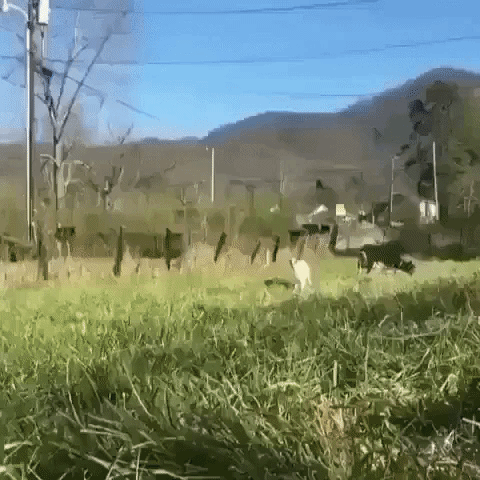
Welcome to the latest edition of Books on GIF, the animated alternative to boring book reviews. This Sunday's selection is ‘Sabrina’ by Nick Drnaso.

‘Sabrina’ is one of the best graphic novels I’ve ever read. It’s intense, serious, profound, depressing and downright frightening:

I first heard about 'Sabrina' earlier this year when a friend was going to give it to her husband as a gift. I learned that it was the first graphic novel to be long listed for the Man Booker prize, and that overwhelming demand made it difficult to obtain. The book had gone through three editions in 2018 before I could find a copy at the Strand a month or so ago. When I began reading ‘Sabrina,’ I had little idea what it was about, and as I write this review, I’m finding it hard to describe. I guess you could say it’s less a character- or plot-driven story, and more message driven. It uses the disappearance and murder of the titular character as a vehicle to comment on the isolation and loneliness of everyday life as well as the conspiracy theories and paranoia that keep bubbling up these days, particularly following mass shootings and other tragedies. Sabrina’s murder was videotaped by her killer, and the footage was mailed by him to news organizations. It then becomes fodder for wacky radio hosts and internet trolls who believe the tragedy is some kind of ‘false flag’ incident using ‘crisis actors,’ like:
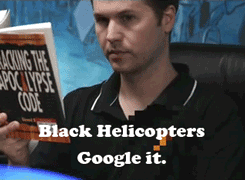
I’m not going to dwell on the conspiracy theory aspect of the book, but I thought it was good at showing how harmful and scary internet trolling can be for those who survive traumatic experiences. What I thought was genius about the book was its depiction of Calvin, an IT worker in the Air Force, who takes in Sabrina’s traumatized boyfriend, Teddy, after she disappears. Through Calvin’s attempts to care for Teddy, we see how empty the airman’s life has become: His wife and daughter have left him, his home is full of unused and empty rooms, and his job is defined by cubicles and inane chit-chat with coworkers. He has very little human interaction and connects with his work friends more through online gaming than grabbing a beer or hanging out. Calvin himself has no one to confide in or have a meaningful conversation with; his mental health exams are conducted via a form he fills in. As a result, he is incapable of offering any real help to or connection for Teddy beyond offering him food. Teddy spends his days practically mute on the couch or in bed, and his interactions with Calvin are awkward, like:
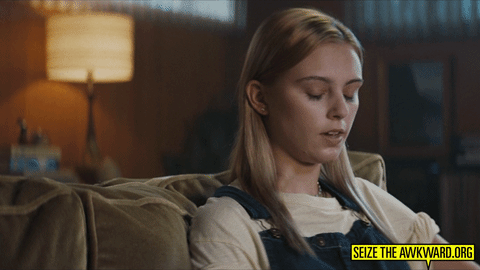
Drnaso’s artwork is simple yet effective — it captures emptiness and the paranoia it can create. There are multiple panels of silence when Calvin is at work, dining alone or interacting with Teddy. My favorite sequence is when Calvin is putting gas in his car alone in the gas station one night, and another man pulls up. No words are said; the two of them just trade looks as the second man goes in to pay for his fuel. I was like:

Many of the panels are small, which made me feel claustrophobic and conveyed to me, physically, the crushing weight of loneliness. That’s a sign of true art. Zadie Smith gave a blurb to this book where she said that ‘Sabrina’ is ‘the best book — in any medium — I have read about our current moment.’ I agree completely. You should all read this book.
My rating:
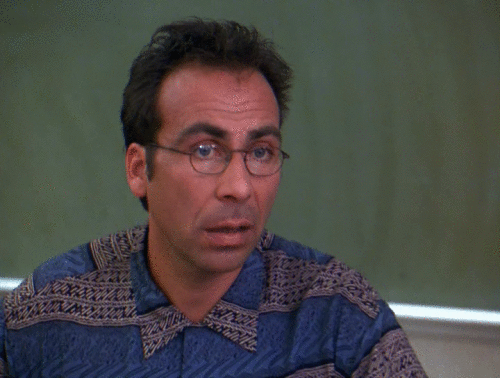
‘Sabrina’ by Nick Drnaso was published by Drawn & Quarterly in 2018. 203 pages. $27.95 at Strand Bookstore.
In case you missed it: Books on GIF #93 featured ‘Tell Me How It Ends: An Essay in Forty Questions’ by Valeria Luiselli.
What's next: Next week you’ll get a gift guide/year-end wrap up where I’ll also ask you to help me prioritize my reviews for 2019. In two weeks you’ll get a review of ‘No Matter How Much You Promise to Cook or Pay the Rent You Blew It Cauze Bill Bailey Ain’t Never Coming Home Again’ by Edgardo Vega Yunqué, and I’ll close out 2018 with ‘Eileen’ by Ottessa Moshfegh.
Shoot me an email if there’s a bestseller, a classic or a forgotten gem you want me to review.
Follow me on Twitter and Instagram.
Thanks for reading, and thanks especially to Donna for editing this review!
Until next time,
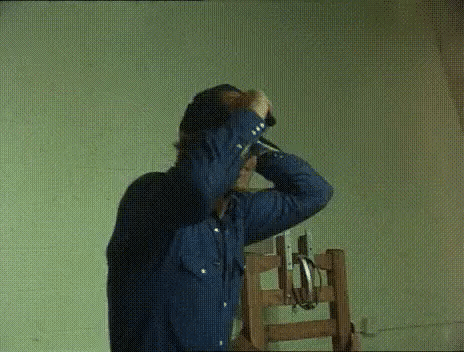
MPV



